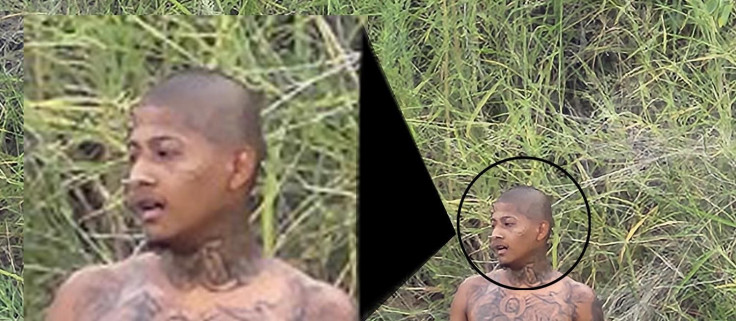
Javier Coronado-Guillen, a Mexican national identified as a member of the Paisas gang, was arrested by U.S. Border Patrol agents from the Laredo North Station during a recent attempt to illegally enter the United States.
According to the agency, Coronado-Guillen has a record of repeated unlawful border crossings, including multiple felony reentry violations and a prior arrest for human smuggling.
Agents from the Laredo office noted in a Facebook post that Coronado bears tattoos associated with violent gang altercations during his incarceration, which they say confirm his affiliation with the Paisas:
"Those lovely tattoos he has signify violent assaults on rival gangs during the time he was incarcerated and he is a self-admitted Paisas Gang member"
This case follows the February 2024 removal of another Paisas member, Humberto Romero Avila. Romero, 45, had entered the U.S. illegally at least 10 times and was wanted in Mexico for the 2007 murder of a 22-year-old man in Guanajuato.
While in the U.S., Romero was convicted of multiple offenses including DWI, larceny, and illegal reentry. ICE officers, with support from the U.S. Embassy in Mexico, linked him to an active homicide warrant and facilitated his return. "I'm not sure I've ever come across a more egregious offender," said Bret Bradford, Director of ICE's Houston Field Office in the official ICE statement on the detainment.
The two arrests highlight ongoing concerns surrounding the Paisas, a criminal group with roots in Colombia's demobilized paramilitary forces. Originally a rural militia tied to the Oficina de Envigado, the Paisas evolved into an independent drug trafficking operation. At its height, the group controlled smuggling routes and engaged in armed conflict with rivals such as the Urabeños.
Despite setbacks, the group remains active in parts of Colombia and has reportedly expanded its presence into urban areas like Bogotá and Soacha, where it recruits minors and engages in drug distribution.
While there is little evidence the group remains a unified national force, the repeated appearance of its members at the U.S. border—often with criminal records and gang affiliations—has underscored the challenges in deterring transnational gang activity.
© 2025 Latin Times. All rights reserved. Do not reproduce without permission.





